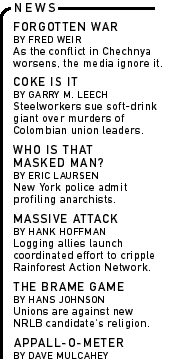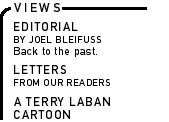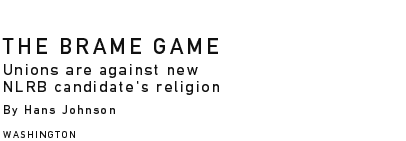|
|

|

|

|
|
|
| |
|
|
|
Even as the Bush administration is erasing reforms--like ergonomics regulations aimed at preventing workplace injuries--it has desperately claimed to be moderate on labor issues. "The president is restoring the balance and the middle ground," White House spokesman Ari Fleischer recently intoned. Such rhetoric will continue to defy reality if Bush nominates J. Robert Brame to head the National Labor Relations Board. Brame, who served on the five-person board between 1997 and 2000 as a result of deals between the Clinton administration and staunch conservatives in the Senate, made his name as a dissenting voice whose quirky, sweeping opinions raised eyebrows. Now they are raising red flags. No mere management ally, Brame is a standard-bearer for the religious right whose ties to the obscure Christian reconstructionist movement reveal an ardent foe of regulations protecting worker safety and labor unions' place in society. In addition to his work on labor law, Brame serves on the board of American Vision, a Christian reconstructionist group whose mission is "the restoration of America's biblical foundation." Many reconstructionists interpret the Old Testament as prescribing minimal and very rigid forms of government, with churches playing key roles and workers groups playing none. The head of American Vision's board of directors is Gary DeMar, who has advocated killing homosexuals and capital punishment for abortion providers. As longtime religious-right observer Fred Clarkson has written of reconstructionists, "They would eliminate not only democracy, but also many of its manifestations, such as labor unions, civil rights laws and public schools." Far more than a hobby, Brame's reconstructionist sympathies are at the heart of his approach to questions of authority in the workplace. During his two-and-a-half-year stint on the NLRB, Brame penned strident dissents with a penchant for setting aside precedent and straitjacketing the right to unionize. There was almost no form of employer coercion that Brame didn't deem a legitimate form of "free speech."
|





